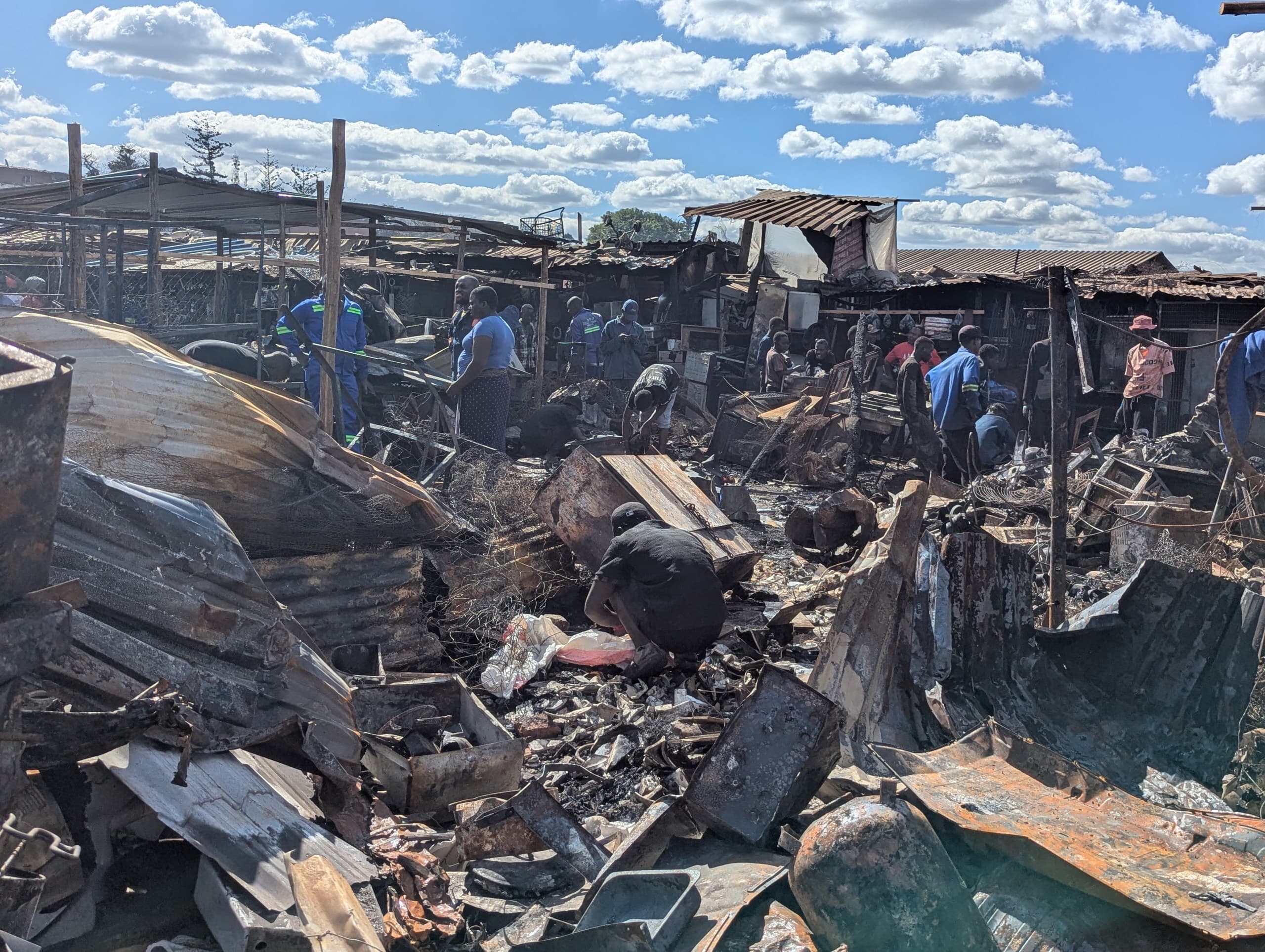A massive fire tore through Mbare’s Magaba industrial area late last night, inflicting severe losses on Small and Medium Enterprise (SME) traders and raising fresh suspicions of arson.
The blaze, which destroyed essential tools and goods, has once again plunged local entrepreneurs into economic despair—amid growing calls for government intervention.
Traders watched helplessly as their workshops and wares—grinders, fridges, drills, and plumbing materials—were reduced to ash. For many, the fire wiped out their only means of income.
“I lost everything,” one distraught trader told ZBC News. “I had just restocked. Now I’m left with nothing. This was how I survived.”
Another trader echoed the sentiment: “The fire came just after I brought in new stock. I stood there and watched it all disappear into flames. It’s beyond heartbreaking.”
A visibly shaken woman added, “I earned a living here to feed and clothe my children. I have no idea what comes next.”
Chairperson of the Mukuvisi Manufacturing Traders Association, Mr. Christopher Makopa, said initial estimates place the value of the destroyed property at around US$15,000. He applauded the fire brigade’s rapid response, which he said prevented even greater destruction.
“The incident is tragic for all traders involved,” Makopa said. “Had the fire brigade not responded as quickly as they did, the damage would have been far worse.”
While the cause of the blaze is yet to be determined, Zimbabwe Republic Police (ZRP) National Spokesperson, Commissioner Paul Nyathi, confirmed that an investigation is currently underway in coordination with the fire department.
“We are working closely with the Fire Brigade to determine what triggered the fire in Mbare,” said Commissioner Nyathi.
However, the frequency of such fires in Mbare—Zimbabwe’s largest informal trading hub—has begun to raise red flags. Last year’s fire at the Mbare Musika vegetable market, which led to large-scale government-led reconstruction efforts, remains fresh in the minds of residents and observers.
In light of repeated incidents targeting key informal trading zones, questions are mounting about possible foul play and sabotage. The destruction of infrastructure that sustains low-income livelihoods has prompted growing suspicions that these are not accidental events but potentially deliberate acts aimed at destabilizing informal economic actors.
Observers are calling for a thorough forensic investigation into the latest blaze, with some suggesting that political or economic motives may be behind the repeated targeting of strategic trading areas.
There is increasing talk within ruling party circles of a more direct ZANU PF intervention in securing, rebuilding, and potentially modernizing informal markets. Party insiders argue that this would not only safeguard informal traders but also restore order and accountability to spaces long plagued by poor infrastructure, lawlessness, and fire hazards.
Whether accidental or not, the Magaba fire may serve as a catalyst for decisive state involvement, especially as authorities weigh long-term solutions for the safety and formalization of informal trade in high-risk zones.
As affected traders wait for answers and assistance, the spotlight now turns to the findings of the police investigation—and whether the government will step in once again to rebuild and restructure Mbare’s vital trading ecosystem.

For comments, Feedback and Opinions do get in touch with our editor on WhatsApp: +44 7949 297606.
